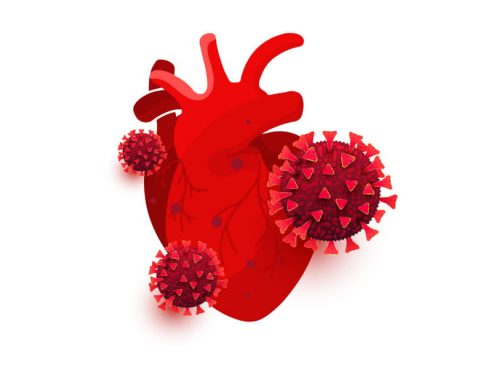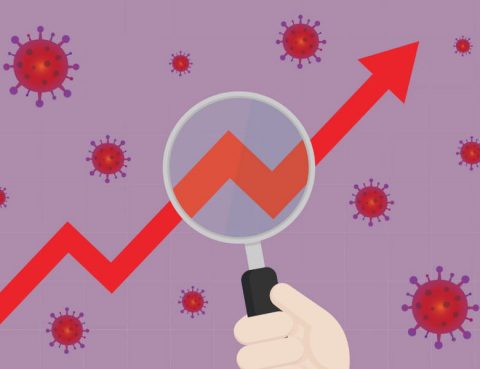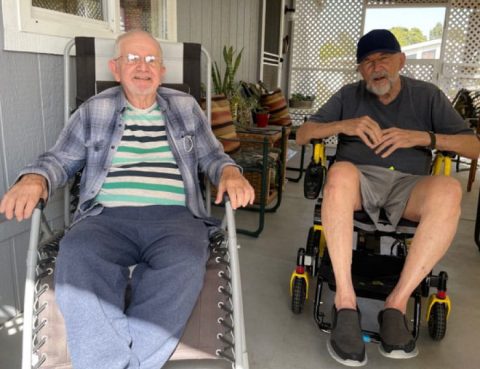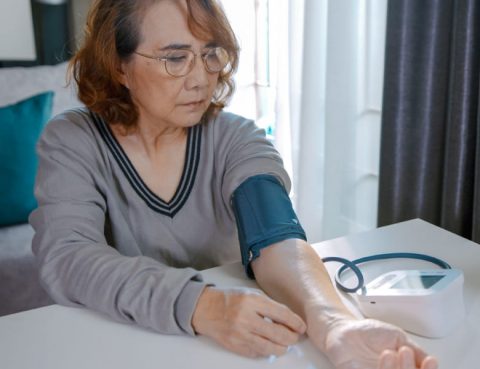(Prostock-Studio/iStock via Getty Images) Lea en español Young adults with depression or overall poor mental health report more heart attacks, strokes and risk factors for cardiovascular disease than their peers without mental health issues, new research shows. The findings, published recently in the Journal of the American Heart Association, add to a large body of…
From left: Dylan’s parents, Gus and Lisa Dorrell, and brother, Jake Dorrell, with the AED that was placed in the park where Dylan collapsed. (Photo courtesy of the Dorrell family) Dylan Dorrell fell in love with running when he was in kindergarten and ran a 5K with his mom on Mother’s Day. As a 17-year-old…
(Irina Shatilova/iStock via Getty Images) People hospitalized with COVID-19 may have an increased risk for heart damage, but not so much the type of inflammation previous research suggested, according to a new study. Early in the pandemic, several studies suggested many COVID-19 survivors experienced heart damage even if they didn’t have underlying heart disease and…
(tommy/DigitalVision Vectors via Getty Images) The first year of the COVID-19 pandemic saw a steep rise in cardiovascular disease deaths in the U.S., with especially high mortality rates for Asian, Black and Hispanic people, according to a new statistical report from the American Heart Association. Cardiovascular disease-related deaths jumped from 874,613 in 2019 to 928,741…
Luther Moxley (right) with his partner, Wayne Curtis. (Photo courtesy of Luther Moxley) Every morning, Luther Moxley helps his partner of 35 years, Wayne Curtis, out of bed and into his wheelchair. Curtis, who has Parkinson’s disease and is partially blind, washes himself seated in the shower, but he needs Moxley to dry him and…
(ATHVisions/E+ via Getty Images) Several years ago, researchers published in JAMA a promising discovery: intensively lowering blood pressure appeared to reduce the risk for cognitive decline in people 50 and older with high blood pressure. But questions remained about whether the strategy was safe or effective in people whose diastolic blood pressure – the bottom…
(pablohart/E+ via Getty Images) Stroke symptoms that vanish in less than an hour still require emergency medical assessments to prevent a full-blown stroke, according to a new science report from the American Heart Association. The scientific statement, published Thursday in the AHA journal Stroke, offers guidance for evaluating suspected “warning strokes” – called transient ischemic…







